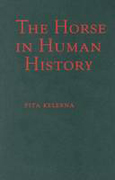
The horse is surely the 'aristocrat' of animals domesticated by man. This book assesses the impact of the horse on human society from 4000 BC to AD 2000,by first describing initial horse domestication on the Pontic-Caspian steppesand the early development of driving and riding technologies. Horse-chariotryand cavalry in effect changed the nature of warfare in the civilisations of the Middle East, India, and China. Beyond the battlefield, horsepower also afforded great advances in transport, agriculture, industry, and science. Rapidityof horse communications forged far-flung equestrian empires, where language, law, weights, measures, and writing systems were standardised and revolutionary technologies and ideas were disseminated across continents. Following Columbian contact, Old and New World cultures are evaluated in terms of presence or absence of the horse and Spanish conquest of the horseless America is seen as the model for subsequent European equestrian colonisation of horseless territories around the world. INDICE: 1. Introduction to equestrian man and to Equus; 2. Equus Caballus:horse domestication and Agro-Pastoralism across the Eurasian steppes; 3. Nomadic horse culture of the steppes; 4. Expansion from the steppes to Southwestern and Southern Asia; 5. China and the steppes beyond its borders; 6. Equestrian Europe - solar edifices, hippodromes, and Arthurian chivalry; 7. Arabian conquest from the South; 8. Turkic-invader converts to Islam and crusader opponents; 9. From the steppes, the Altaic nomad conquest of Eurasia; 10. From Europe, Equus returns to its continent of origin; 11. Horses are us
- ISBN: 978-0-521-51659-4
- Editorial: Cambridge University
- Encuadernacion: Cartoné
- Páginas: 460
- Fecha Publicación: 20/04/2009
- Nº Volúmenes: 1
- Idioma: Inglés
- Inicio /
- VETERINARIA /
- EQUINOS
